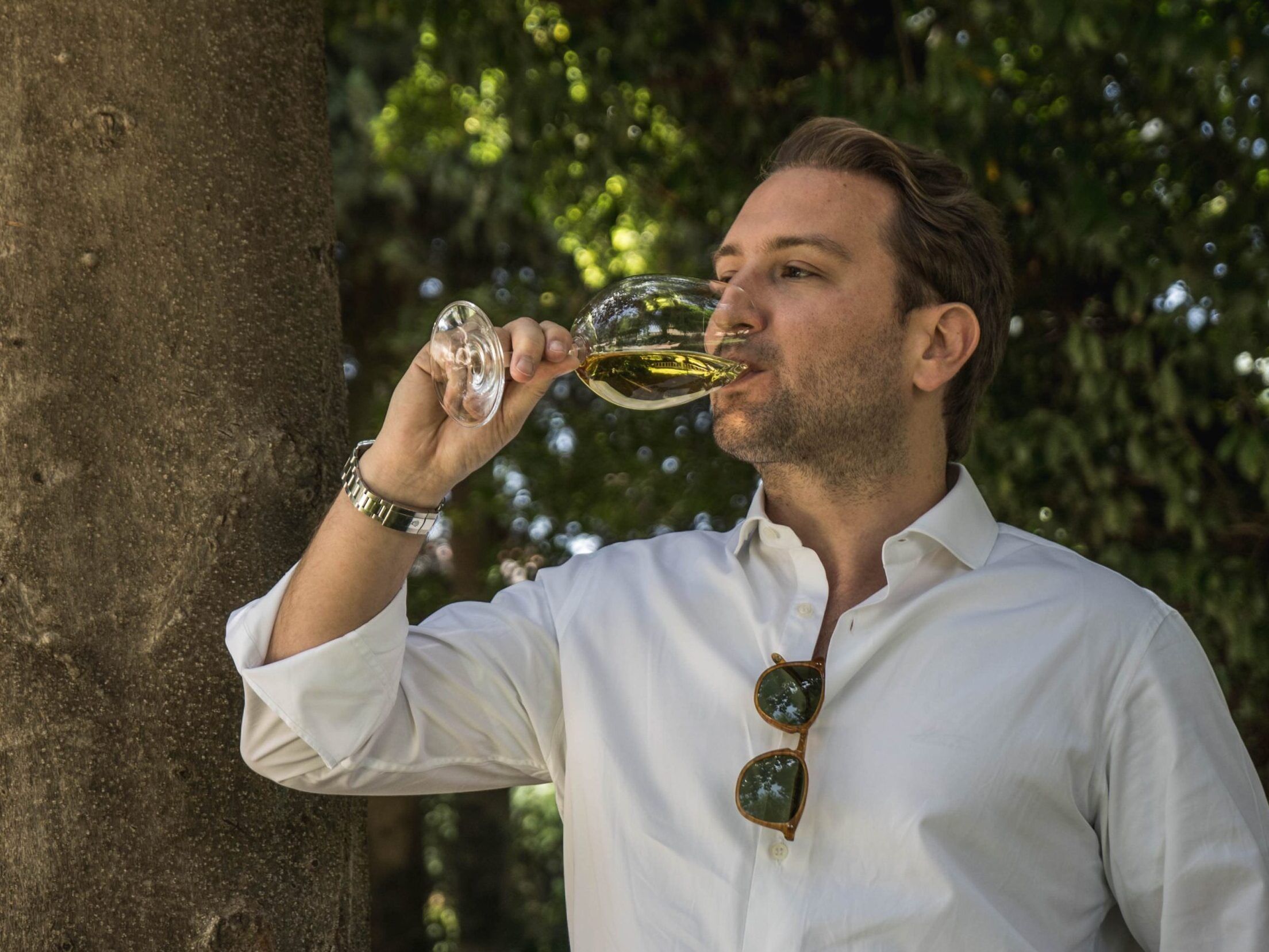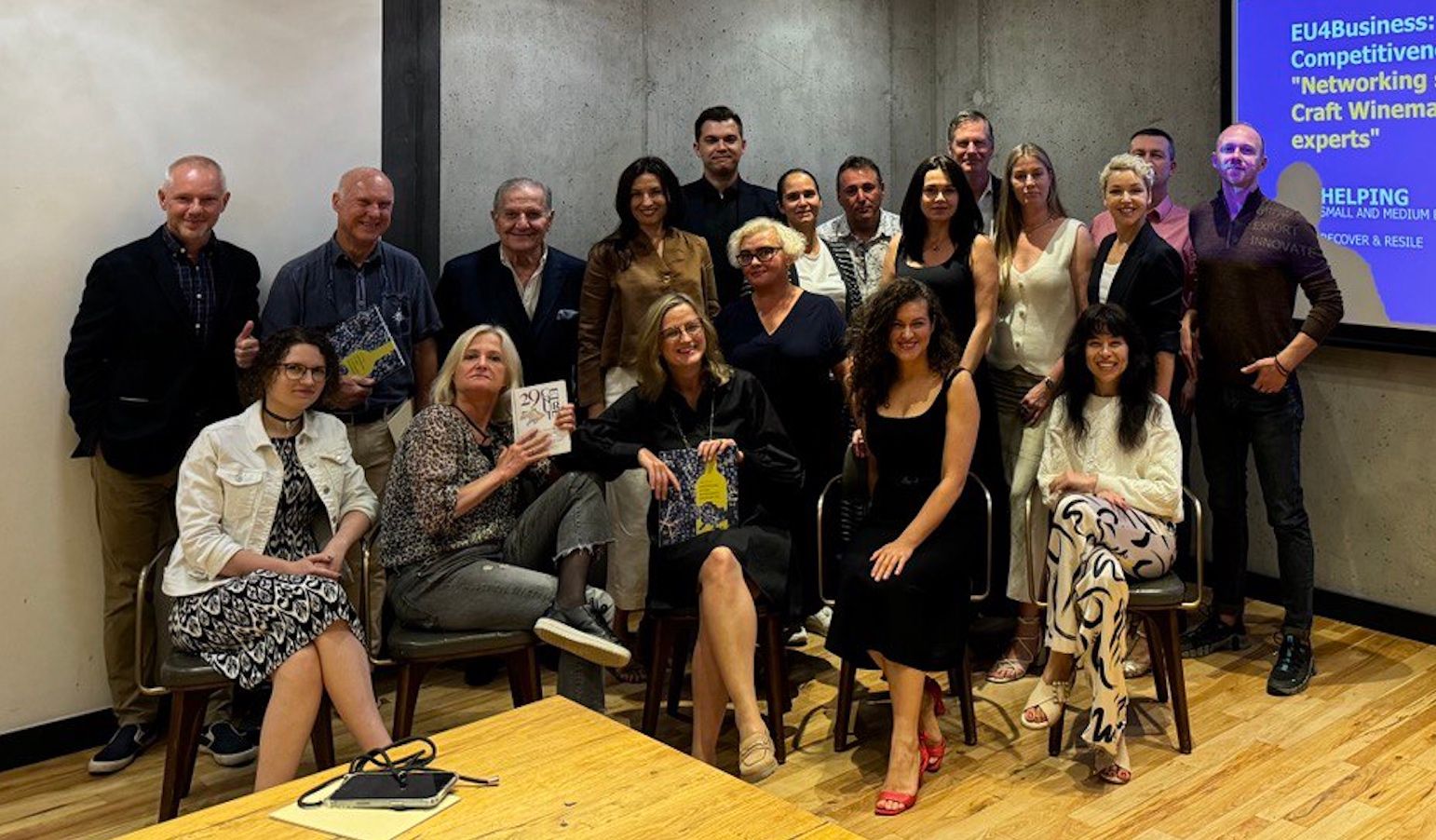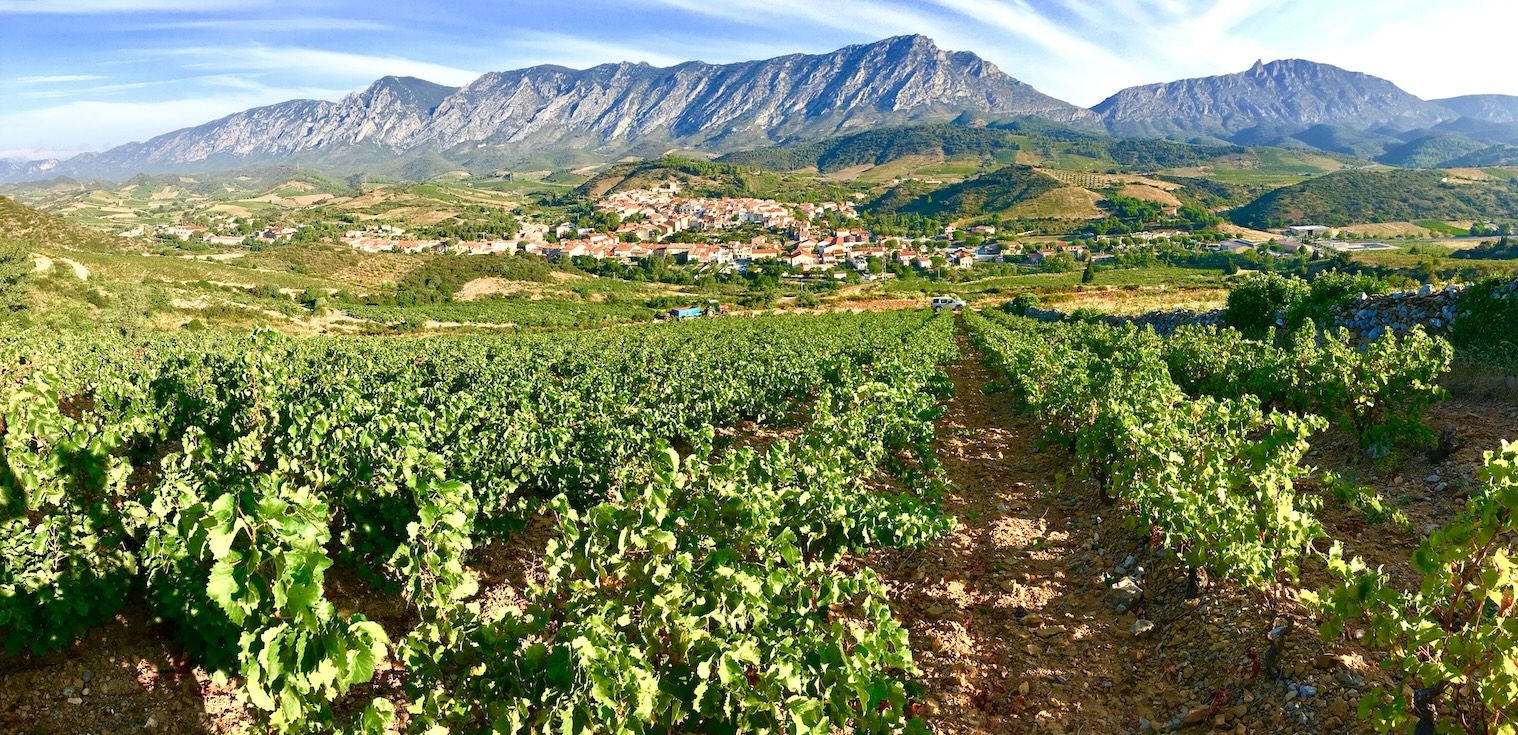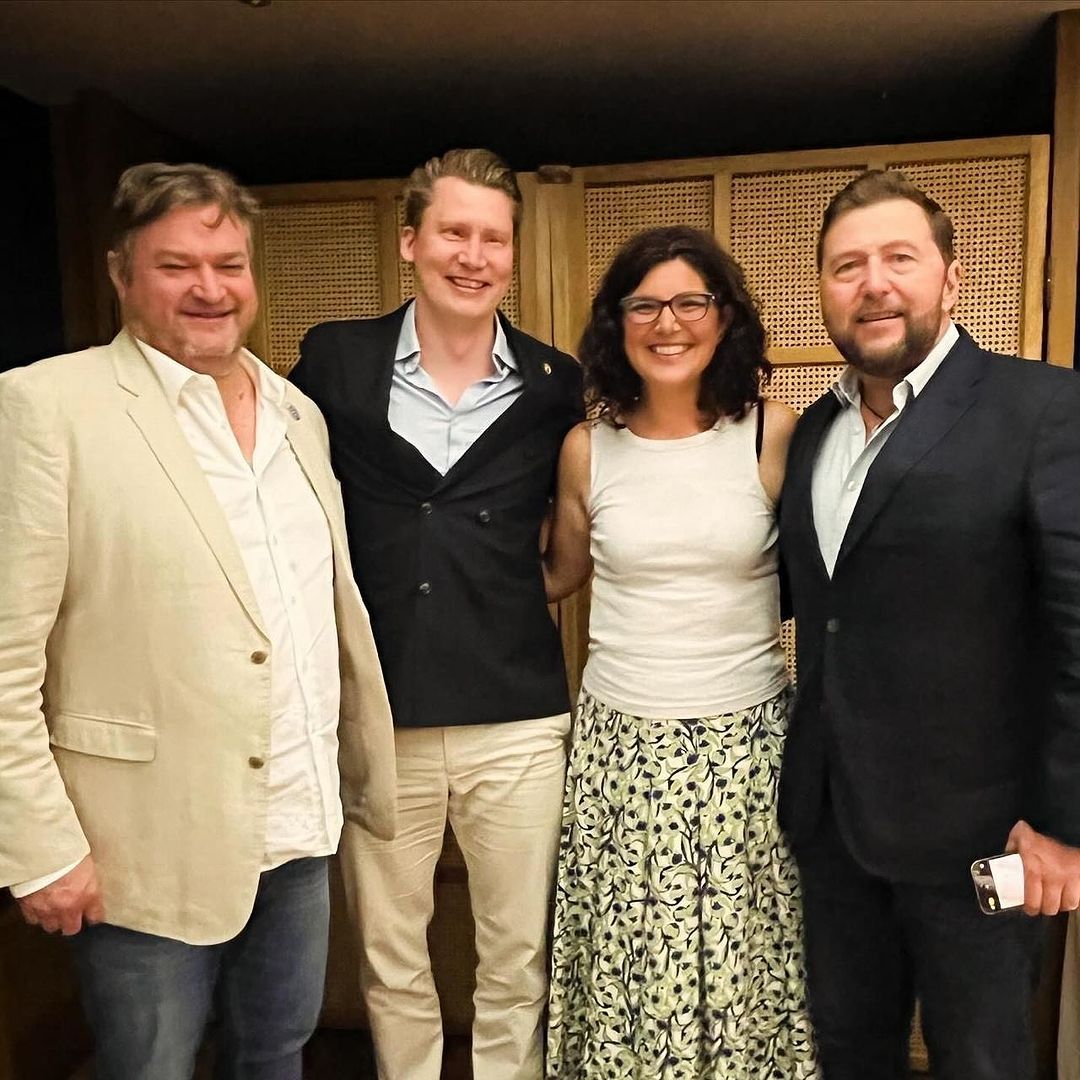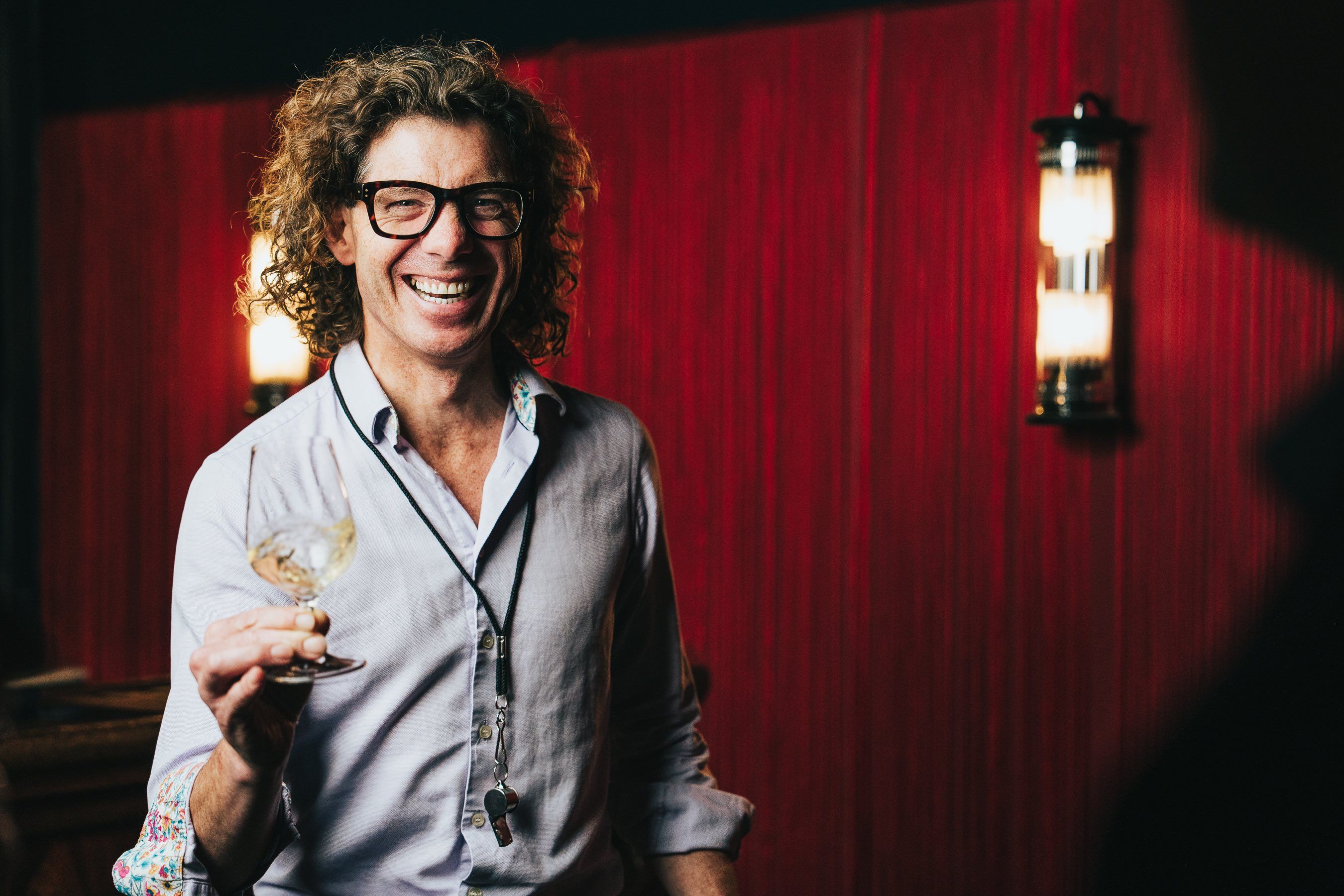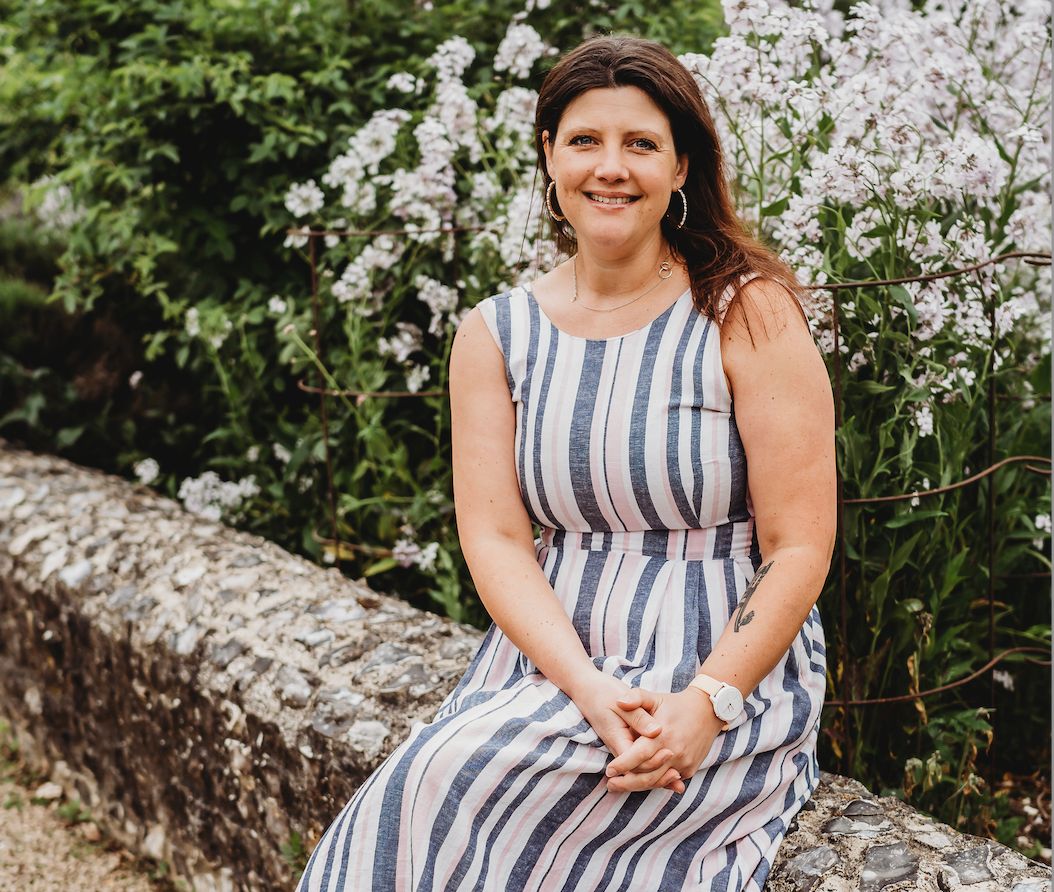“The drugs we need to fight the virus are in short supply because they are now too expensive while the vaccine roll-out has been delayed because a law needs to be passed to protect the manufacturers from malpractice,” writes Sara.
After reading, with sadness, South African winemaker, Bruce Jack’s account of the terrible difficulties facing his country’s industry I want to reinforce his message by standing shoulder-to-shoulder with him and all South African producers by telling Lebanon’s story, to remind consumers that the wineries and other drinks companies across the world are fighting a battle for survival, each in their own way.
The build-up of a perfect storm
Lebanon is a tiny country. Our 60 or so wine producers make only 10 million bottles* half of which we are usually able to export before the pandemic made this more difficult, especially as much of our wines are sold in the on-trade and are usually above the sweet-spot price the multiples want.
The pandemic has hurt us, as it has hurt every wine producer on the planet but we have another, home grown, virus to deal with. In October 2019, before life changed for everyone else, we experienced the first trauma. In the wake of a popular revolution against the inability of the state to provide the basics for its people, the banking sector fell on its knees and the Lebanese pound lost 80% of its value in a matter of weeks and strict capital controls were introduced.
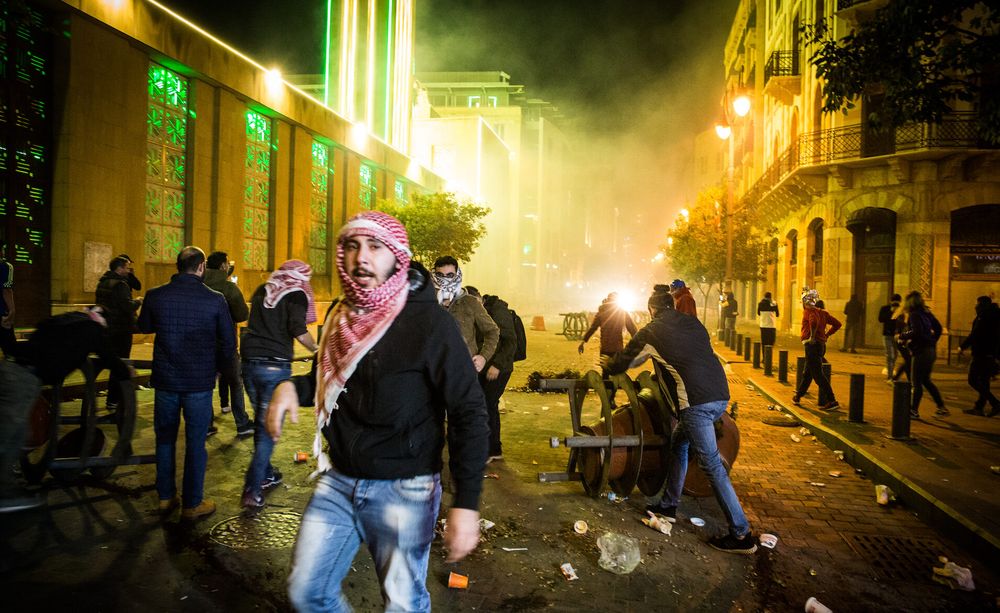
“People are hungry – in many cases they are starving – unable to afford food. They say why worry about the virus? If we can’t work, we’ll die of starvation.” © Hoda Kerbage
Not knowing what was around the corner all our immediate survival rested on exporting our wines to generate the hard currency needed to survive to buy the materials needed for our work and to pay the 4,000 people who rely directly on the wine industry. We have no furlough scheme, no interest-free loans; all we had was a currency that was losing value by the day.
We were already impacted by the overflow of human tragedy of the conflict in neighbouring Syria, and not so long-ago, elements of Islamic State were positioned not far from the vineyards of the Bekaa Valley. Add to this the ongoing tensions of the region and you see that we are in a perfect storm. And yet we are still standing…just, but I often wonder if I am a wine producer or a currency trader. Half my day is taken up with buying dollars and euros at the most favourable rates to keep us in business.
And then August 4…
Worse was to come, although it would be unfair to say that the August 4 explosion at the port of Beirut affected the wine industry directly.
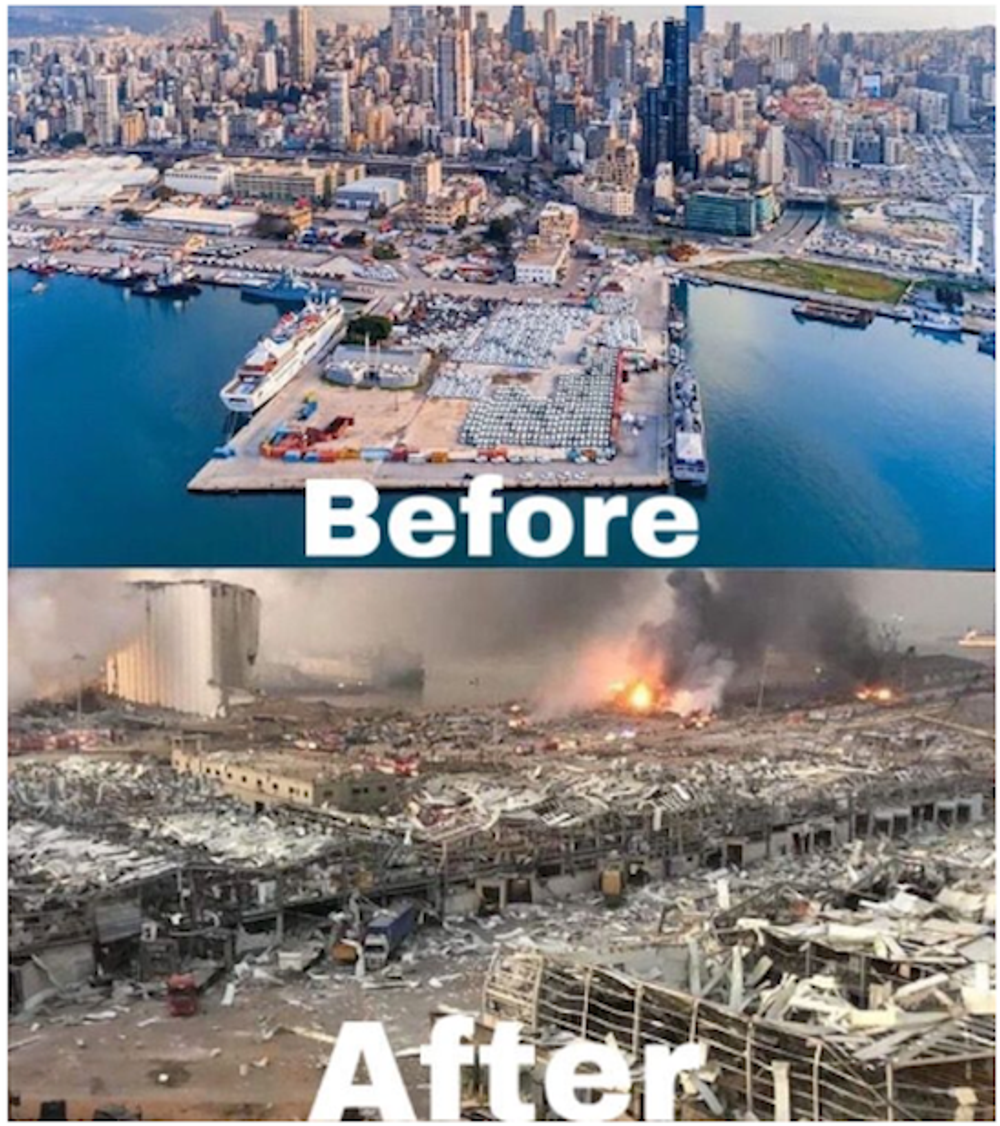
Our vineyards are far from Beirut but many producers have administrative offices close to the port. On a personal level, my apartment was destroyed and I have sent my family to France, while I remain in Lebanon. I realise that I am lucky to be able to do this – many would like to leave but can’t – but the separation is painful and the shock and trauma of that terrible day will stay with us for ever.
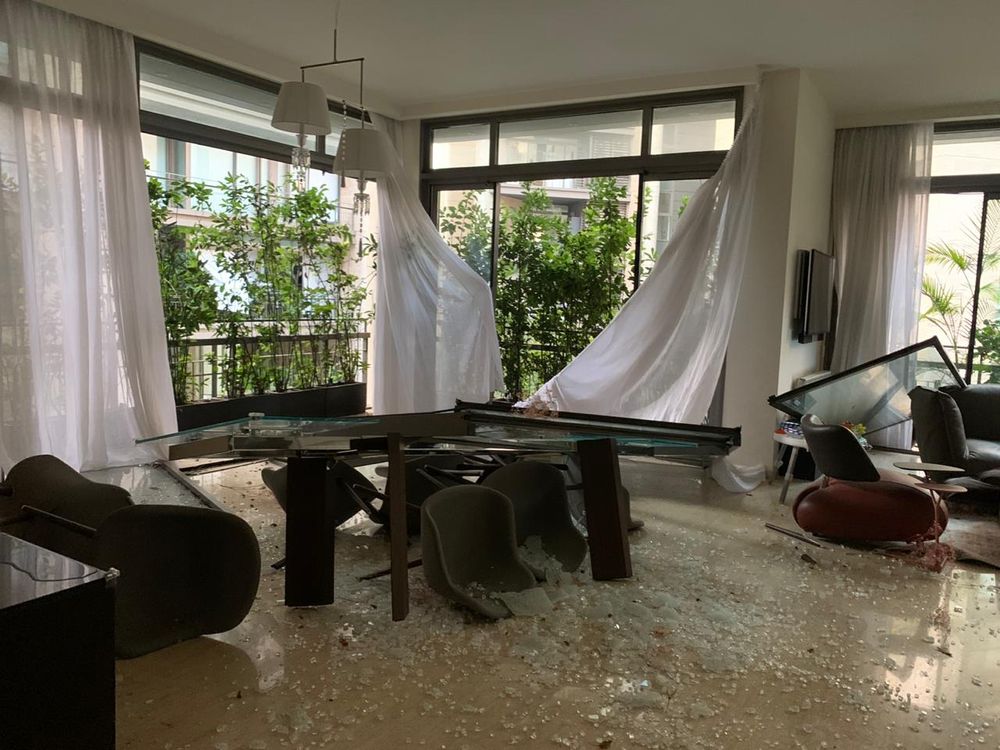
The impact of the explosion on Sara’s apartment
And so as we start 2021, the Lebanese political class still has not taken heed of the priorities: to make provision to salvage the economy and the state finances and to sufficiently protect us from the Covid -19 virus.
The result is that people are hungry – in many cases they are starving – unable to afford food. They say why worry about the virus? If we can’t work, we’ll die of starvation. The drugs we need to fight the virus are in short supply because they are now too expensive while the vaccine roll-out has been delayed because a law needs to be passed to protect the manufacturers from malpractice.
So what about wine?
In the face of all this, people might ask what place is there for wine, a product many associate with pleasure and some cases fine living? But we are a key part of the economy – tourism and F&B in particular – and that is why we have to, somehow, keep going. But wine is important to us for another reason: it gives brand Lebanon much needed positive PR. Like in South Africa, wine has helped erase some of the negative imagery people have of our country.
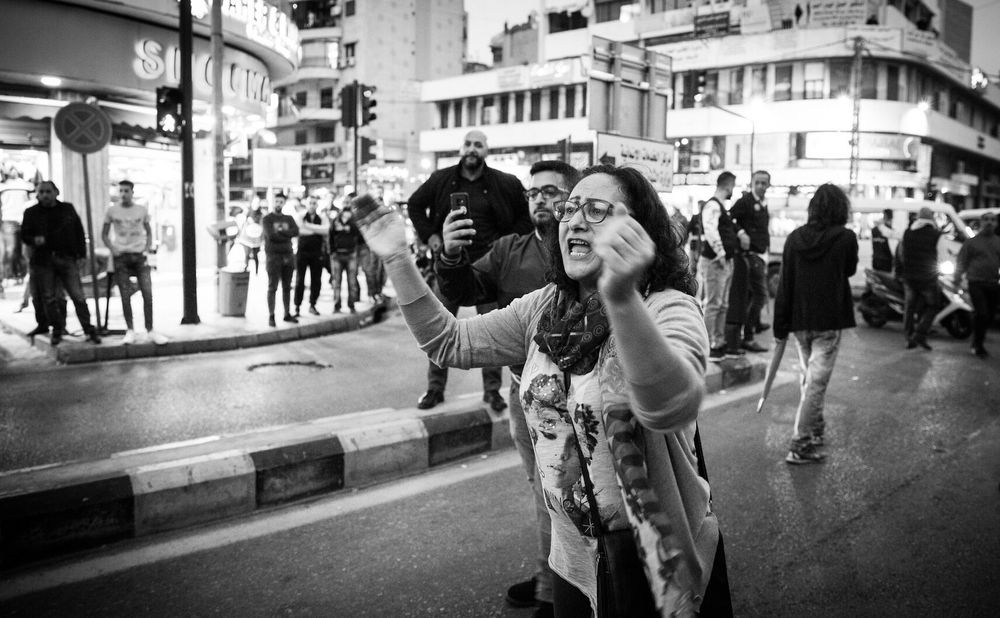
“Our dream as a nation is to emerge from instability and create a society based upon our deep-rooted values, of family, of sharing, of generosity.” © Hoda Kerbage
Our winery is the oldest and biggest in the country but even we have not been immune to the internal and external impacts. So, I feel for my colleagues in our small industry with whom over the past 20 years we have travelled the world selling our story. There is a bond that exists in the wine world that I like to think is special. It is our connection with nature, the wonder of the annual cycle that gives us hope.
But with size comes responsibility. My family, along with other investors, bought Château Ksara from the Catholic Church in 1973. Before that, the Jesuits who founded the winery in 1857, had been responsible for one of the great agricultural adventures in the region. They laid the foundations of the Lebanese wine industry and over the next 116 years witnessed war, famine, the collapse of the Ottoman empire, the French Mandate, World War II and Lebanon’s independence in 1943. Oh, and let’s not forget Phylloxera!
And it was out of another tragedy, the Lebanese civil war, that the industry as we know it today grew. When the fighting was over the Lebanese saw what had happened to wine in the intervening years; they saw opportunities. Château Ksara rebuilt; others started from scratch. The story of the modern industry is one of determination that we have developed over centuries of hardship.
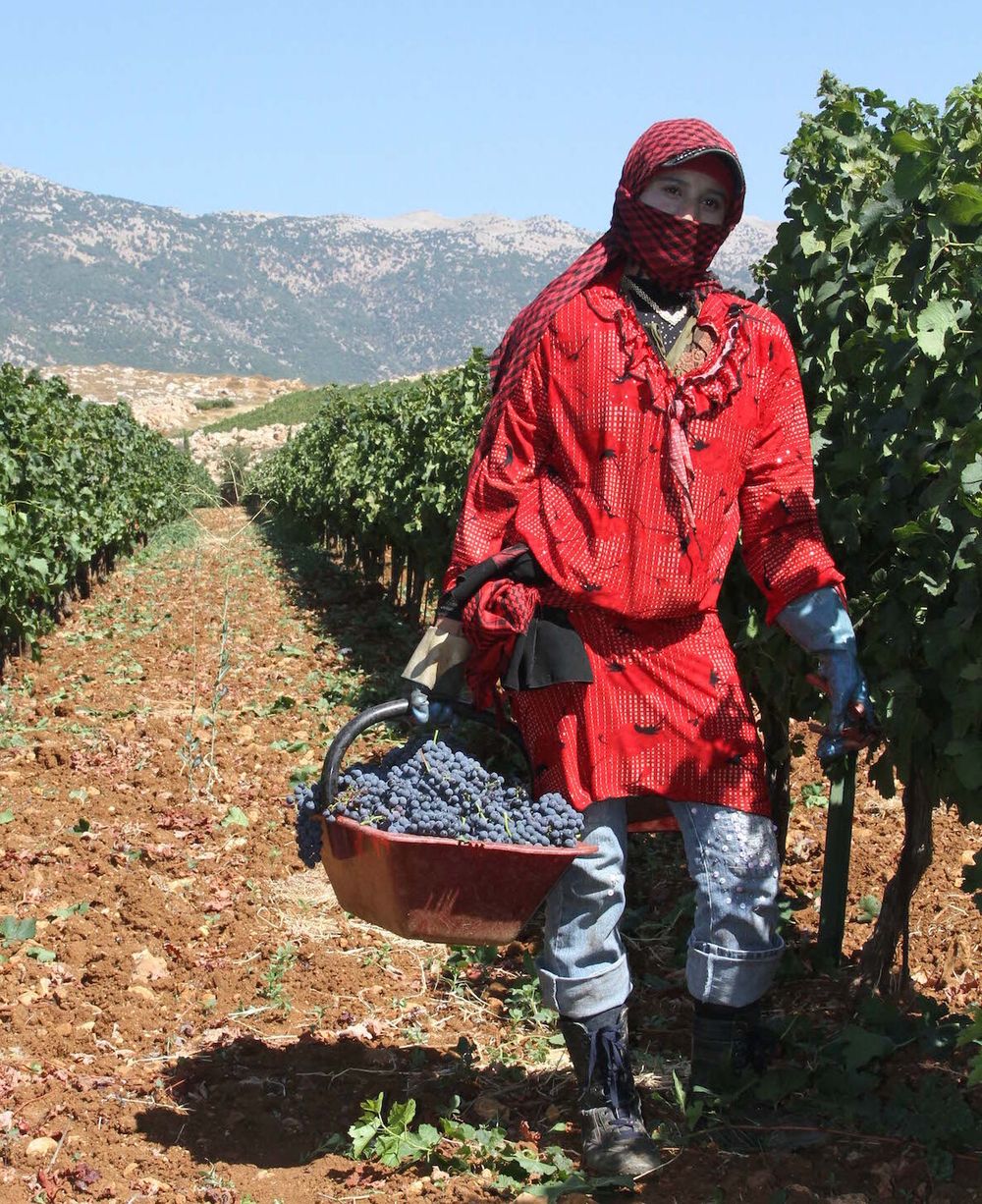
“The people behind the bottle are real with real families and real concerns.”
But why must we always build on the foundation of pain?
Our dream as a nation is to emerge from instability and create a society based upon our deep-rooted values, of family, of sharing, of generosity and (apart from our world famous food) there can be no greater unifier than our wine and that is why our fragile industry must weather this storm and emerge stronger and wiser to implement lessons learned.
We always talk about the people behind the bottle, more, if we are being honest from a marketing point of view than anything else, but they are real with real families and real concerns. Therefore, my message to devotees of Lebanese wine is this: Whenever you can, be it in a restaurant or a wine merchants, remember us, but also remember South Africa and every other region that has been rocked by the impact of this lethal and disruptive disease.
*(for the record our winery makes 30% of that amount)
